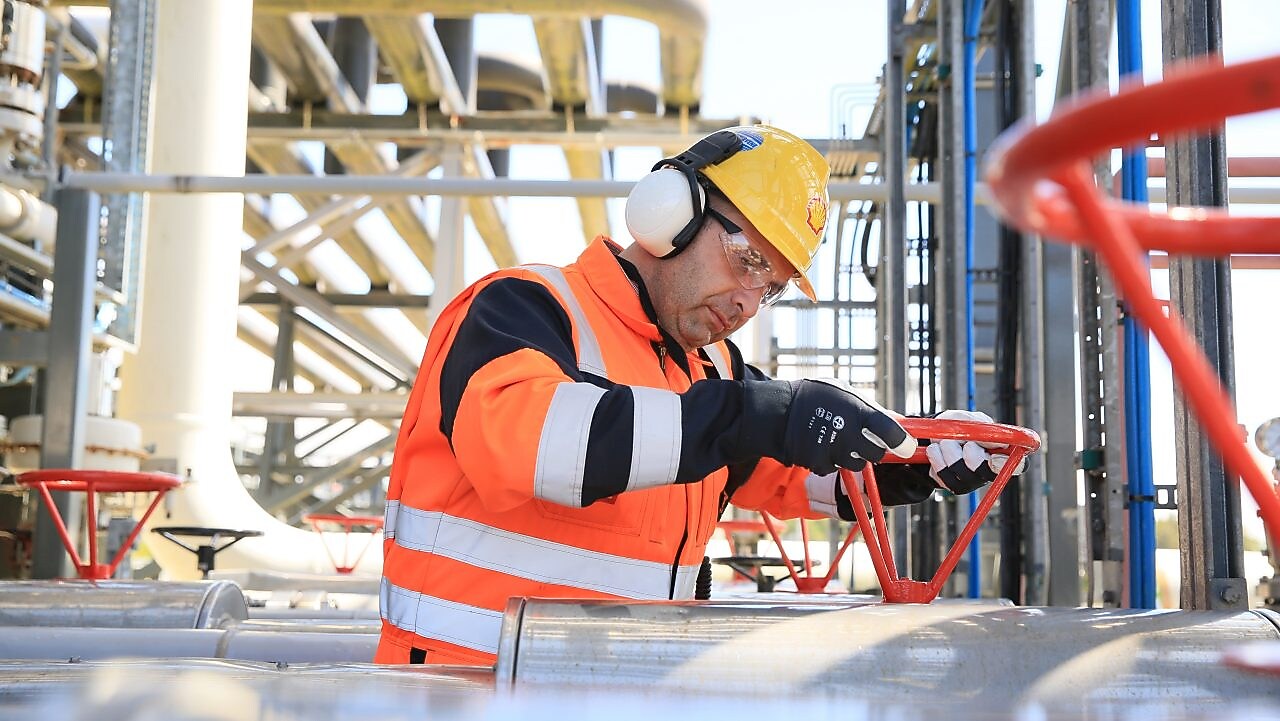
Shell Mysella Stationary Gas Engine Oils

Gas engine oils for more productive, sustainable operations
As more, and cleaner, energy is needed to meet the rising energy demands of a growing population, stationary gas engines are increasingly being turned to for reliable power generation.
But if stationary gas engines are set to play such an important role in today’s energy mix, they must be expertly maintained. Central to this is the proper use of effective stationary gas engine oils, in light of challenges caused by higher power density engines, reduced sump capacity and lower oil consumption.
In doing so, Shell Mysella helps futureproof your gas engines even in the most demanding of operating environments, for a more productive, efficient operation.
Key Benefits ₁
Extended oil life
As manufacturers push the boundaries of gas-engine design, in-service oils are forced to deliver longer oil-drain intervals (ODI). Which is why Shell Mysella engine oils have been formulated to reliably navigate low-oil consumption and high-temperature environments.
Enhanced protection
Growing energy demands mean gas engines are exposed to increasingly severe conditions. To protect against high temperatures and pressures, Shell Mysella oils deliver superior deposit control – keeping your ring belts, pistons and cylinder liners less susceptible to wear.
Reliable operations
Amid extreme environments, downtime becomes a more realistic outcome. Fortunately, the ongoing protection provided by Shell Mysella reduces the likelihood of unexpected maintenance or part replacement, providing a reliable operation by sustaining planned maintenance intervals.

Improved performance in sour gas application
Since engines fuelled by sour gases can rapidly reduce the oil life of more traditional gas engine lubricants, Shell Mysella provides superior acid neutralisation – reducing the corrosion of engine components and lowering sludge formation.

Why stationary gas engines are on the rise
The growing demand for cleaner energy, the need for reliable supply, and a shift toward decentralised power generation have combined to create perfect conditions for stationary gas engines to rise in prominence. Due to their flexibility and strong performance characteristics, gas engines are increasingly being used as part of:
- Peaking power plants – As providers of electric power to the grid, these plants rely on stability and flexibility whether they are ramping up or winding down, making gas engines a perfect solution.
- District heating – As a more reliable and responsive alternative to gas turbines or coal, stationary gas engines are more frequently integrated into combined heat and power (CHP) plants.
- Commercial buildings – With greater energy needs, and a demand for the supply to be as reliable as possible, commercial units see gas engines as a good fit for their operational needs.

Shell Mysella whitepaper
A growing sector. Evolving environments. Our whitepaper lays out the external factors that are changing how the power industry operates, before outlining why Shell Mysella might be the most important choice you make for your stationary gas engines.

Shell lubricants for gas engines
Whether you work with natural gas or sour gas, explore our entire portfolio of lubricants for stationary gas engines. And once you’ve selected your Shell Mysella oil, see how oil condition monitoring service Shell LubeAnalyst could take your operations to the next level.
Real-world case studies

Shell Mysella S3 N 40 case study
By integrating Shell Mysella S3 N 40, this energy company was able to increase its de-coking intervals by 66%. Discover how much the switch saved them in annual costs.
Disclaimers
1 For more information around performance characteristics, test results and technical claims, please consult our Shell Mysella product brochure, here
All data us derived from tests in laboratories of Shell Lubricant Solutions or partners using accepted standard methods.
For more product specific information, please visit www.epc.shell.com for more details.

